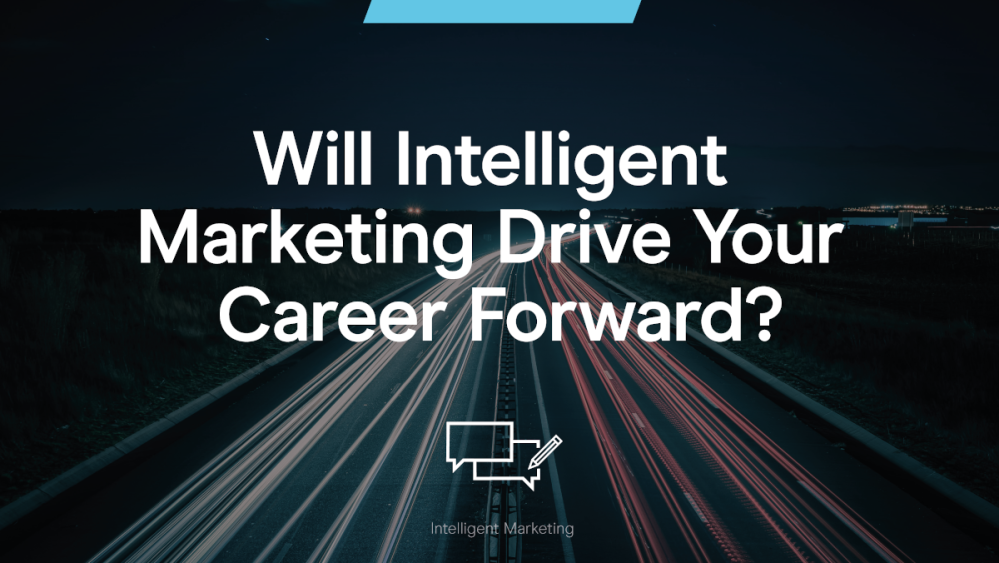Leading the way and getting noticed for your contributions in a marketing department can often be challenging. That step up into a management role or senior marketing leadership role is brave step to take, so let us help you drive your career forward.
Our upgraded Intelligent Marketing diplomas take away the focus from one area of marketing such as digital, data or customer centric marketing and teach you practical skills and processes which will make you a well-rounded marketer in all of these areas.
What is Intelligent Marketing?
We group the key themes of Intelligent Marketing into these themes:
Customer engagement
The better your relationship is with your prospects and customers, the more likely they are to spend money with you. To build that relationship, you must result engaging to your target market.
You can achieve this by ensuring you are customer centric. This means putting your customer’s and prospect’s needs and interests first whatever you do. This relates to marketing, sales, customer services, and product development. You should also apply customer relationship management (CRM) methods and database marketing.
When specifically looking at marketing communications this translates into:
- Ensuring every communication has value and is relevant
- Reaching out to customers on their preferred channel
- Aligning frequency of communication with customer needs and expectations
To effectively deliver customer-centric marketing you need a deep understanding of the reasons customers buy your product, their preferences, and behaviours. Data is key in your ability to fulfil this.
Data
There are many different sources of data that can be used in a lot of ways. In general, the aim is to increase customer engagement and improve long-term sustainable revenue growth.
Think of data as a piece of information that has resulted in action. It is a record of something in the past. You can use this to understand and predict the future. Using this data effectively is key to making your business more efficient and effective. Data is the lifeblood of any effective marketing department.
Data allows you to understand what your customer's preferences are, how they want you to communicate with them, their interests, their actions, their attitudes, and who your ‘ideal’ customer is.
Fundamentally, data helps you figure out how to maintain the connection between what your customers want and what you are providing. Your aim is to reduce churn and, in turn, increase the lifetime value of each of your customers, whether they are shoppers, donors, patients, or students.
Using data in your communications is required to give customers the level of service they expect and allows you to build on your relationship with them. Without this, customers could disregard your brand entirely or not consider it a feasible option for their business.
Responsible marketing
Responsible marketing has become central to marketers, with the proliferation of communication channels between organisations and prospects and customers. People are now more aware than ever of their rights; it is now extremely easy to damage your brand by not considering the ethical and legislative implications of what you are doing.
Intelligent marketers must always be aware of the legislation regulating the activity they are doing as well as the potential ethical impacts their actions may have on people or the environment.
Sometimes a regulation can be sector-specific, such as pharmaceuticals or gambling, but it can also be channel-specific such as advertising, or digital marketing.
Moreover, an intelligent approach to responsible marketing means considering the impacts on the customer and adjusting your marketing activity to suit them best, rather than going on with your activity anyway just because you are compliant with the law.
Creativity
Intelligent Marketing takes into account that you reach audiences on an emotional level and execute a strategy through creativity.
Creative thinking, moving image, still image, the written word, the big idea are all creative outputs that are absolutely needed to reach your audience on an emotional level.
Creativity is how we connect on an emotional level through marketing, the creative thinking and creative execution are the tools that allow us to connect to our audience.
Creativity in intelligent marketing embraces:
- The assets or multimedia that will be enjoyed by your customers
- The creative thinking behind your brand
- Your content marketing strategy
- The 'big idea' behind your campaign
To be able to connect with the right audiences; your ideal customers, creative teams must understand your customers' behaviour, your strategy, the technical possibilities within your business, and previous campaign performance.
With this information, they can make informed decisions about their creative approaches. Without this information, they are guessing what will resonate with your audience as mentioned in the video above.
Discover more about our diplomas
Postgraduate Diploma in Intelligent Marketing – for marketing leaders
Professional Diploma in Intelligent Marketing – for marketing managers

